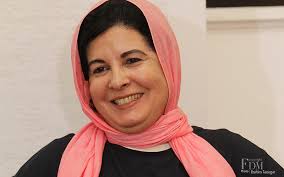Islam, women and reformism
Though discrimination against women inherent in all cultures is universally recognized, Islam-as a civilization and religion- is still the prime suspect in this regard. Islam is most often criticized, questioned and denounced for its allegedly inegalitarian practices towards women.
“Women and Islam” has become the main topic in contemporary debates. It is also very difficult today to suggest an objective approach to this issue due to the mass media that propagate stereotypes and Islamophobia, as well as the political ideology in Muslim societies.
In this vein, Islam is seen as the prototypical religion that oppresses women. Reinforced by the international political situations, this image tones down and covers up the cultures of discrimination in other societies, traditions or religions.
The recurring discourse and media-hype on Muslim women created an image of eternally submissive and alienated women in the contemporary collective imagination. According to this vision, women are the main victims of an Islam supposed to be tyrannical, inegalitarian and barbarian, and they can only be liberated by means of a western and universal emancipation.
The symbolic need for Muslim women’s “liberation”, induced by a western ethnocentrism, relativized and absolved other cultures and societies, mainly the western ones, of any discrimination against their women supposed to be “naturally liberated” and to have acquired all their rights.
The intellectual “right to interfere” is deeply rooted in the western ideology. “To liberate the poor Muslim women victims of Islam” is a political expression that delimits the cultural boundaries between “them” and “us”.
Nonetheless, the culture of discrimination against women is universal. Inequality of rights between women and men has been the rule for millenaries. Regardless of the undeniable current achievements, women’s secondary situation is a persisting phenomenon that concerns all cultures and civilizations to varying degrees.
In our post-modern and hyper-globalized world, the correlation between patriarchy and ultraliberalism resulted in new forms of exploitation and domination of women. In the North and the South, these women face similar situations of “globalized” vulnerability and insecurity. Despite undeniable advancements, equality- as a founding principle of universalist democratic systems- remains today one of the most unaccomplished promises of modernity.
Note that the objective here is not to reject any criticism, mainly western criticism, about the actual discrimination against Muslim women, like some Islamic discourses that are totally obsessed by the idea of a “ western conspiracy” against Islam. It is not criticism-which might be true- that should be refused. Rather, the real issue that should be subject to criticism is the fact that this criticism is limited to Islam to the point of obsession.
Unfortunately, there is a common “religious perspective” that led to a culture of discrimination against Muslim women.
Nevertheless, it is not Islam as a spiritual message that oppresses women, but rather its different interpretations and legal rulings founded by interpretative ideologies many centuries ago. In the absence of any reforms, those interpretations turned into unchanging religious laws and marginalized the sacred text.
It is very important to make a distinction between Islam as a spiritual message, and Islam as a religious tradition that has its institutions, ideologies and diverse interpretations.
It is noteworthy that the issue of Muslim women and their rights has been thus far confined to the consequences of anticolonial struggles and their post-modern corollaries such as the contemporary international geopolitical conflicts (Palestine, Iraq, Afghanistan, 11 September). These conflicts, therefore, fuel the recurring identity crisis and delegitimize any reform attempts, mainly regarding the issue of Muslim women considered as the guardians of the last Islamic bastion to be protected.
Given that women’s issue is the major challenge for political modernization in the Arab-Islamic space, this issue will face resistance and circumstantial frustrations.
We need a real and deep reformist vision. It means to reform the traditionalist and culturally based interpretation of the sacred Texts, which over century’s became “sacred” while it is a human constructed interpretation. It is not a question of reform of the Qur’an as sacred Text, but a reinterpretation and renewal (tajdid) of our understanding of the sources, i.e. a new rereading of the Text in harmony with the requirements of the reality.
Asma Lamrabet
June 2018
À propos de l'auteur

ASMA LAMRABET
Native de Rabat (Maroc), Asma Lamrabet, exerce actuellement en tant que médecin biologiste à l’Hôpital Avicennes de Rabat. Elle a exercé durant plusieurs années (de 1995 à 2003) comme médecin bénévole dans des hôpitaux publics d'Espagne et d’Amérique latine, notamment à Santiago du Chili et à Mexico.






